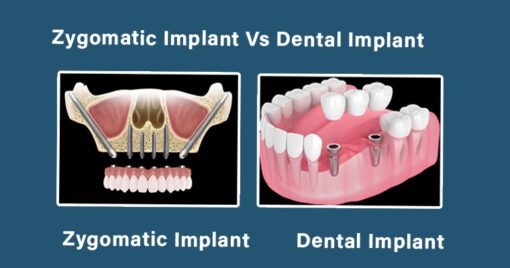The search for the best way to deal with a tooth that is fractured has made people ask, “What’s the best option between root canal vs implant?” Both options can save your tooth from being irreparably fractured or even lost, but they are quite different. For some people who have an acute risk of fracturing their teeth, one option may be more suitable than the other. However, in other cases, both these solutions may seem like viable options. In general, it’s good to get informed about all the pros and cons before you choose which one is better for you personally. Read on to learn more about what makes each treatment option unique and how they differ from each other. If you think that either of these two solutions could be useful, speak with your dentist about them.
Root canal treatment
A root canal is often recommended if a tooth has fractured or broken. The idea is to remove the source of the issue so that the tooth can remain healthy, free of pain, and keep its place in the jawbone. A bit of tooth anatomy: The tooth has a crown (the visible part you brush, floss and whiten), a root that goes below the gum line and connects the tooth to the jawbone, and a pulp (a soft living tissue inside the tooth). Problems that arise from the pulp are called “dental emergencies.” If not treated, they can cause major damage to the tooth, the gums, and even the surrounding teeth. The best way to treat a dental emergency like a fractured tooth or damaged pulp is with a root canal.

Dental Implant
An implant is a fixed dental restoration that is placed into the bone where a tooth was lost. The implant, made of titanium, acts as an artificial root that can then be used to put an artificial tooth on top of it. In other words, an implant is a tooth replacement method, whereas a root canal is a method of saving a tooth that was in danger of being lost. An implant is best for saving a tooth that cannot be saved with a root canal. An example would be a wisdom tooth that grew crooked or has been fractured from decay or injury. Another situation in which an implant can be used is when a tooth is too decayed to be saved with a root canal.

Which is better? Root canal or Implant?
An important thing to remember is that the choice to do a root canal or an implant will depend on the specific situation and your dentist’s recommendations. For example, if your tooth has been fractured, you probably won’t have much choice. You’ll likely need to get a root canal to save the tooth. But if you are choosing the treatment method yourself, it’s a good idea to consider the three main things: your health, the current condition of the tooth, and the quality of the bone where the tooth is positioned. You should also think about how long you plan to keep the tooth. If you plan to have your tooth for life, getting an implant is probably a better choice. However, if you only need to keep the tooth for a few months, a root canal might do the trick.
What’s the difference between root canal & implant?
- The situation: Root canals are generally reserved for teeth that are still in their sockets. Implants, on the other hand, can be used even if the tooth has been lost.
- Treatment time: Root canals are usually completed in one visit, while implants usually take more than one visit to place the tooth.
- Healing time: The healing time of root canals varies, but they should be finished healing in about 6 months. Implants are usually healed in a year, but the healing time can vary from person to person.
- Tooth preservation: Root canals preserve the tooth, while implants do not. Long-term health Root canals may cause problems in the long-term, such as more teeth falling out or gum disease, whereas implants have a low risk of these problems.
Pros and Cons
Pros of Root Canal
The tooth is preserved and will not fall out.
There is no need for any long-lasting artificial attachment.
The tooth can be saved even if it has been badly decayed.

Pros of Implants
The tooth is placed in the best position so that it will be strong and healthy.
The artificial tooth will last much longer than a root canal treatment.
The adjacent teeth will not be damaged.
Cons of Root Canal
A root canal doesn’t always kill the bacteria inside a tooth. This can mean that bacteria could come back and cause new infections in the future.
The tooth may be weaker than before because the inside of the tooth has been drilled.
Getting a root canal can be painful, although modern techniques like local anesthesia and Nitrous Oxide make it a lot less painful than it used to be.
Cons of Implants
The implant itself can damage the jawbone.
The implant can fail. This can happen if the implant is not placed correctly or if the patient’s oral health is not good.
The implant can be expensive, especially if you need multiple teeth replaced.
Summary
Both root canals and implants can save teeth that have been severely damaged and make it possible for you to keep your natural teeth longer. However, each option has its pros and cons, and it’s important to consult with your dentist and discuss your options before making a decision about which treatment is best for you. What’s most important is that you keep your teeth healthy by taking good care of them with regular brushing, flossing and dental visits.
Follow Us For More Updates





